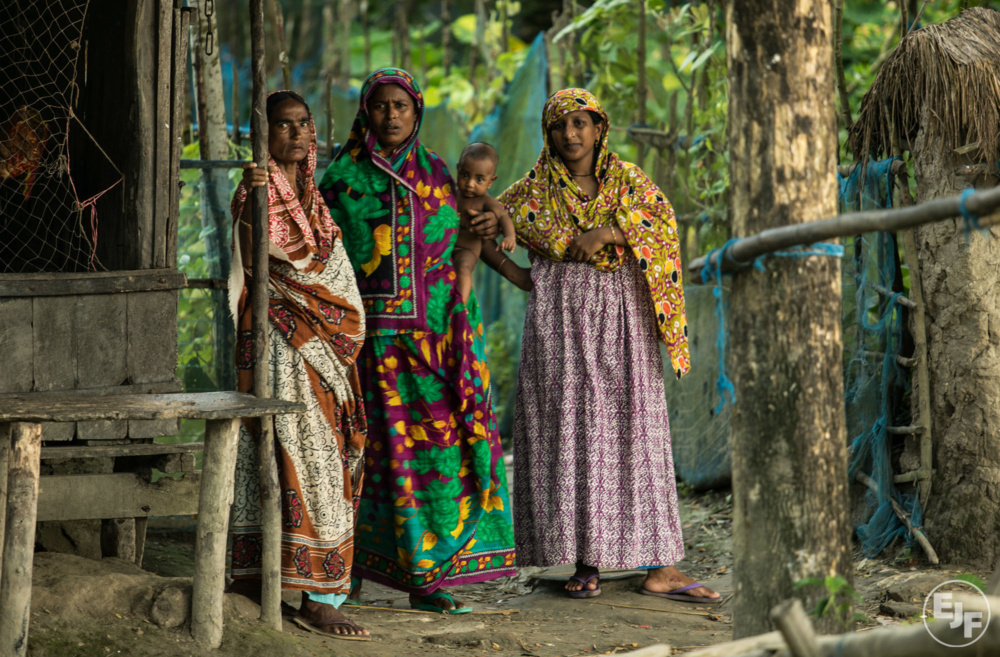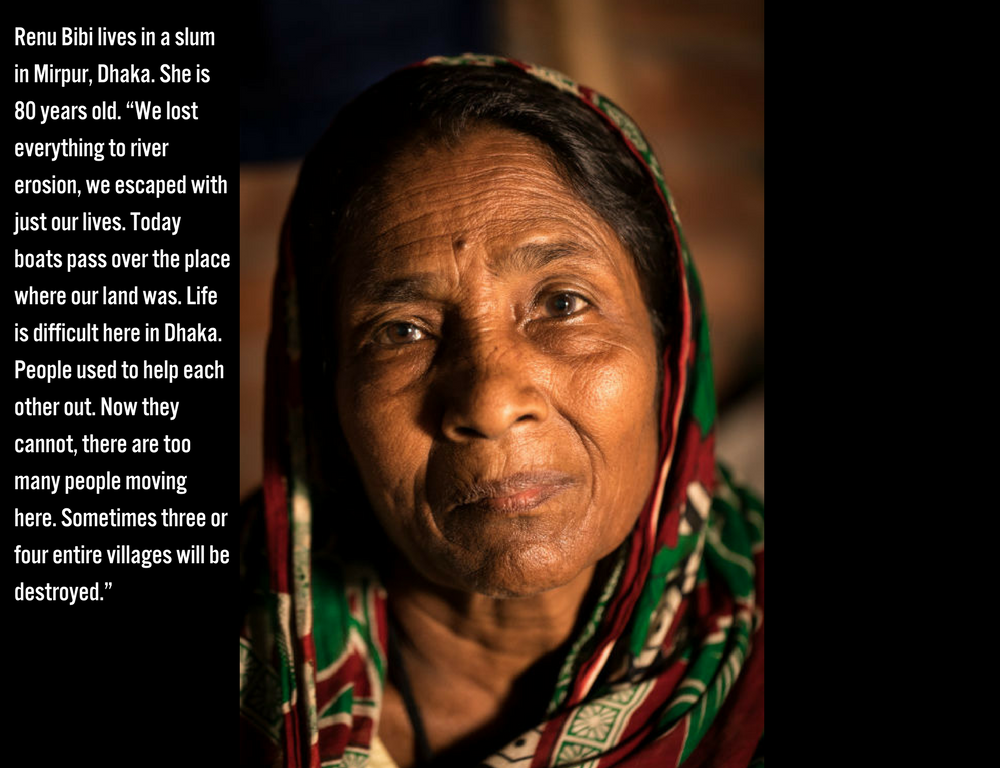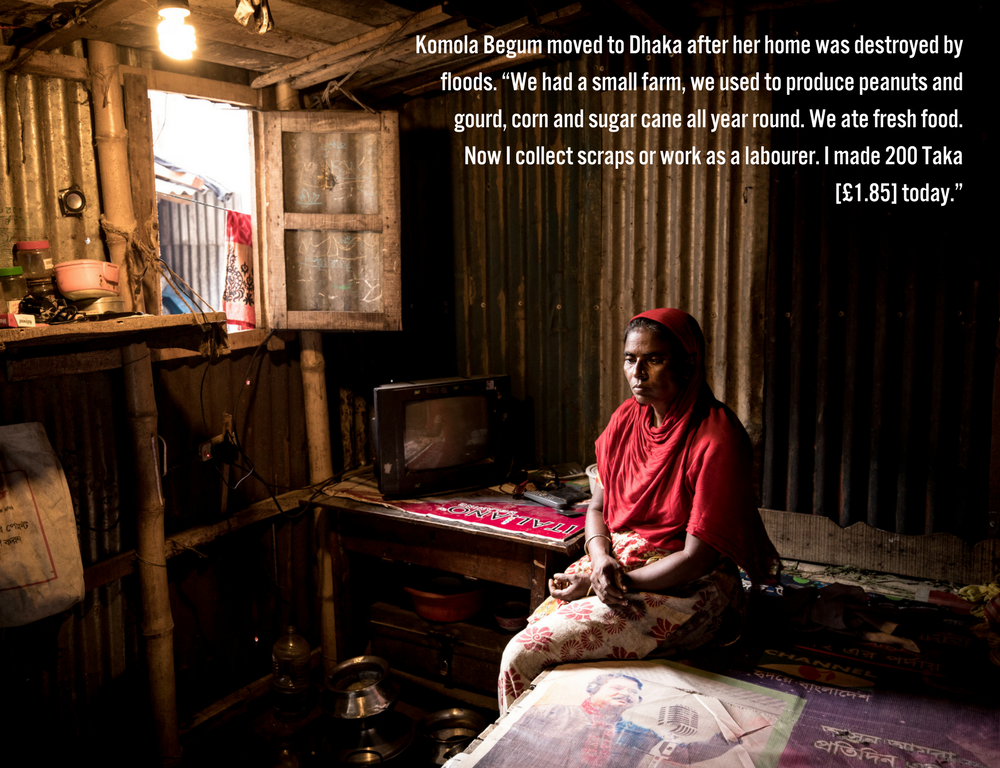
International Women's Day: Help us secure climate justice for some of the world's most vulnerable
On International Women’s Day, EJF is calling for climate justice for women and girls, who feel the effects of climate change most deeply.
Climate refugees, especially women and girls, need legal recognition and protection.
Climate change affects women and girls disproportionately.
70% of people living in poverty worldwide are women and are most severely affected by climate-induced displacement.
In 2016 extreme weather-related disasters displaced around 23.5 million people. A large majority of climate refugees are women and children.
Climate change is a threat multiplier, meaning that it exacerbates existing vulnerabilities. Women are very often responsible for agriculture, and for collecting water. This means that droughts and extreme weather conditions caused by climate change can have a significant impact on their lives.
EJF’s recent trip to Bangladesh highlighted the extreme circumstances climate change has forced women and girls to face. Previously reliable patterns of rain are now erratic, causing both drought and flooding meaning that agriculture can no longer support families.
People live in fear of having to flee their homes in the night, if sudden floods leave their homes underwater. Many of these people are forced to leave the homes their families have lived in for generations to start a new life in the already overcrowded capital, Dhaka. The growing slums are often the only option, leaving their families health and wellbeing at risk.

In January, the European Parliament passed a resolution that acknowledged the vulnerability of women and girls to climate migration and calling for action to protect those most vulnerable to climate change.
This is a great step forward as it means that the need for legal protection for people affected by climate change is rising up the political agenda and can no longer be ignored.
But it is vital that the pressure is maintained. We need to ensure that real action to empower women and girls to participate in decision making linked to climate mitigation and adaptation is taken.
Above all, climate refugees need legal protection. Climate change is happening now, and already having devastating consequences, most often for the world’s most vulnerable communities.
Join EJF and call for the legal recognition and protection of climate refugees.

The EJF climate campaign
- EJF calls on all countries to rapidly and fully implement the global climate agreement agreed in Paris in December 2015 and support efforts to raise their emission reduction pledges over time in line with its goal to phase out man-made emissions and keep global temperature rise below 1.5°C on pre-industrial levels.
- EJF calls on governments to recognise climate refugees and support a new legal agreement to guarantee their rights and their fair claim to our shared world. These populations currently have no support under existing legislation, such as the 1951 Geneva Convention to protect those fleeing war and persecution.
- EJF calls for a UN Special Rapporteur on Human Rights and Climate Change to examine the issues surrounding climate change and human mobility, help protect the most disadvantaged and vulnerable populations within and across countries, and guide international action on climate-induced displacement.
SIGN UP FOR OUR EMAILS AND STAY UP TO DATE WITH EJF